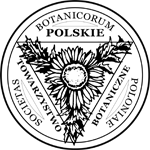Abstract
The present study was conducted in the years 2007- 2008, after 6-year-long experiments in the cultivation of spring barley in a crop rotation system and in monoculture. The other experimental factor was the spring barley protection method. Intensive protection involved comprehensive treatment of barley (in-crop harrowing, seed dressing, application of herbicides, fungicides, a retardant and an insecticide). Extensive protection consisted only in in-crop harrowing, without the application of crop protection agents, except for seed dressing. The above mentioned factors formed the background for the study on the cultivation of white mustard and oats, as phytosanitary species, in successive years. In the test plants, no mineral fertilization and crop protection were applied. Such agricultural method enabled an objective assessment of the consequent effect of monoculture, crop rotation and crop treatments. A hypothesis was made that the cultivation of the phytosanitary plants in the stand after 6-year-long barley monoculture would allow obtaining the level of yields and weed infestation similar to those of the crop rotation treatments. It was also assumed that the cultivation of white mustard and oats would eliminate differences in plant productivity caused by the negative influence of extensive protection. It was proved that the cultivation of the phytosanitary plants eliminated the negative influence of monoculture on the level of their yields and weed infestation. However, the test plants did not compensate negative consequences of extensive protection. In spite of this, white mustard and oats effectively competed with weeds, and the number and weight of weeds in a crop canopy did not cause a dramatic decline in yields. In the test plant canopy, the following short-lived weeds were predominant: Chenopodium album, Galinsoga parviflora, Echinochloa crus-galli. The absence of herbicide application resulted in the compensation of perennial species: Elymus repens and Cirsium arvense.
Keywords
spring barley; monoculture; crop rotation; protection method; consequent influence; white mustard; oats; yielding; weed infestation






